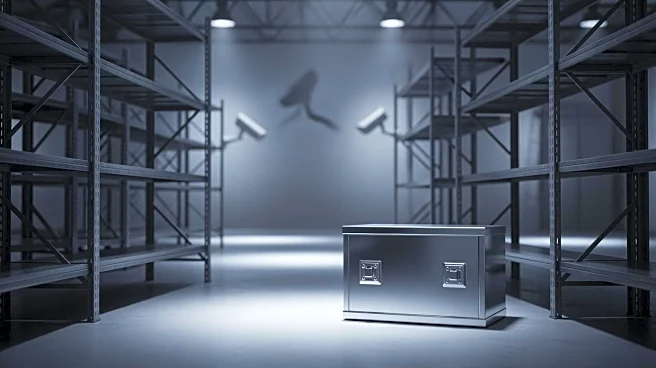Rapid Read • 8 min read
Industrial robotics is revolutionizing manufacturing by enabling more efficient operations and facilitating the testing of new processes and components. Automation and robotics are making waves at every stage of manufacturing, from rapid prototyping to generative design and additive manufacturing. These technologies are applicable to both startup and SMB operations as well as global-scale manufacturing multinationals. The most commonly used types of industrial robots include SCARA, articulated, cylindrical, delta, and cobots, each offering unique capabilities for various applications.
AD
The integration of industrial robotics in manufacturing is crucial for enhancing efficiency, precision, and safety. Robots excel at repetitive and precise tasks, reducing human error and improving product quality. This increased efficiency allows manufacturers to offer better products at lower costs, enhancing customer satisfaction and brand reputation. Additionally, robots improve workplace safety by handling dangerous tasks, reducing the risk of injuries. As technology advances, the need for skilled robotics technicians grows, creating new job opportunities in programming, maintenance, and management.
The future of industrial robotics in manufacturing is promising, with emerging technologies such as collaborative robots, machine learning, and artificial intelligence driving innovation. These advancements will enable robots to perform more complex tasks and improve their adaptability to changing production needs. Manufacturers will need to invest in training and upskilling workers to handle these new roles. As the industry evolves, the integration of robotics will continue to shape manufacturing processes, offering more sophisticated solutions to meet the demands of modern production.
The integration of industrial robotics in manufacturing is not just about efficiency; it represents a shift towards a more automated and intelligent production environment. This transformation has implications for workforce dynamics, as robots take over tasks traditionally performed by humans. Manufacturers must address concerns about job displacement and ensure that workers are equipped with the skills needed to thrive in this new landscape. Additionally, the use of AI in robotics raises ethical questions about decision-making and accountability, requiring careful consideration and regulation.
AD
More Stories You Might Enjoy












